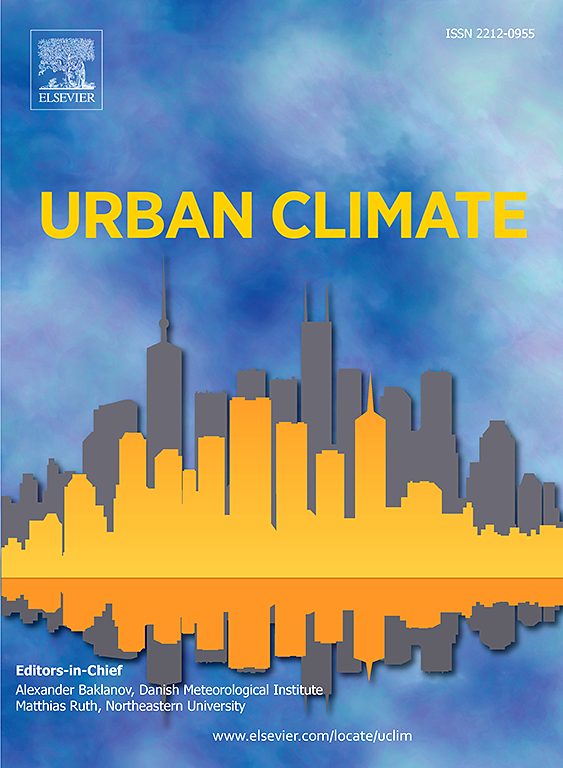A study on risk perception and adaptive behavior of the Chinese public toward urban heat based on the MPPACC model
IF 6
2区 工程技术
Q1 ENVIRONMENTAL SCIENCES
引用次数: 0
Abstract
In the context of global warming, the interaction between heat waves and urban heat islands has led to an increasing trend in the intensity, frequency and duration of extreme heat events in urban areas, which seriously threatens the health of urban populations. Adaptation will be the main strategy for human beings to cope with climate change under the current situation. This study uses the model of private proactive adaptation to climate change (MPPACC) as the basic research framework and conducts a questionnaire survey on 516 members of the public in Guangzhou (a tropical megacity in China). The data were analyzed using a structural equation model to explore the effects of cognitive factors and maladaptation on heat adaptation behavior. The results of the structural equation modeling showed that adaptation incentives (β = 0.185, β = 0.485, β = 0.1) and risk experience (β = 0.262, β = 0.102, β = 0.541) affect the three parts of adaptation appraisal (including perceived response efficacy, perceived self-efficacy and perceived adaptation costs). Perceived severity (β = 0.122), perceived susceptibility (β = 0.268), perceived response efficacy (β = 0.109), and maladaptation (β = −0.248) affect adaptive behavior. This study made the following contributions: i) Added a limited number of studies using the MPPACC. ii) Findings confirmed that the MPPACC is an effective model for understanding the actions of people facing threats, demonstrating the model's applicability in the context of urban heat. iii) The MPPACC model was refined to further explore the impact of adaptation incentives on risk perception and perceived adaptive capacity, and whether risk experience has an impact on perceived adaptive capacity. IV) To provide a scientific basis for urban areas to cope with extreme heat events.求助全文
约1分钟内获得全文
求助全文
来源期刊

Urban Climate
Social Sciences-Urban Studies
CiteScore
9.70
自引率
9.40%
发文量
286
期刊介绍:
Urban Climate serves the scientific and decision making communities with the publication of research on theory, science and applications relevant to understanding urban climatic conditions and change in relation to their geography and to demographic, socioeconomic, institutional, technological and environmental dynamics and global change. Targeted towards both disciplinary and interdisciplinary audiences, this journal publishes original research papers, comprehensive review articles, book reviews, and short communications on topics including, but not limited to, the following:
Urban meteorology and climate[...]
Urban environmental pollution[...]
Adaptation to global change[...]
Urban economic and social issues[...]
Research Approaches[...]
 求助内容:
求助内容: 应助结果提醒方式:
应助结果提醒方式:


